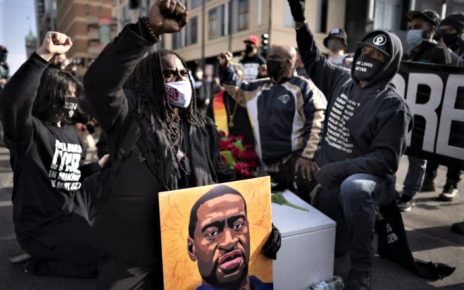Donald Trump has made history once again. He is the first former US president to be convicted of a crime, found guilty of 34 charges in a hush-money case. Despite this, Trump is also the first major party candidate running for the White House as a convicted felon. What does this mean for his presidential bid? Let’s break it down.
Can Trump Still Run for President?
Yes, he can. The US Constitution has only a few requirements for presidential candidates: they must be at least 35 years old, a “natural born” US citizen, and have lived in the US for at least 14 years. There are no rules stopping someone with a criminal record from running for president. However, the conviction could affect voters’ opinions. A Bloomberg and Morning Consult poll found that 53% of voters in key swing states would not vote for Trump if he were convicted. Another poll from Quinnipiac University showed that 6% of Trump’s supporters might be less likely to vote for him because of the conviction, which could be significant in a close race.
What Happens to Trump Now?
Trump has been free on bail during the trial, and this remains unchanged after the verdict. He will return to court on July 11 for sentencing. The judge will consider several factors, including Trump’s age, and the sentence could range from a fine or probation to possible prison time. Trump plans to appeal the verdict, which could delay any final outcome for months. Even after sentencing, it’s unlikely Trump would be immediately imprisoned because he would remain free on bail during the appeal process.
Grounds for Appeal
Trump’s legal team has several potential grounds for appeal. One point of contention is the testimony of Stormy Daniels, whose detailed account could be seen as both credible and prejudicial. Trump’s defense argued for a mistrial during her testimony, but these motions were denied. Additionally, the legal strategy used by the District Attorney might be questioned. Trump was charged with serious felonies for falsifying business records related to an alleged attempt to influence the 2016 election. However, prosecutors did not specify which federal or state election laws were violated, which could be a basis for appeal.
Could Trump Go to Prison?
While it is possible, it’s highly unlikely that Trump will serve prison time. The charges are class E felonies, the lowest tier in New York, each carrying a maximum sentence of four years. The judge might consider Trump’s age, lack of previous convictions, and the non-violent nature of the crime when deciding the sentence. Additionally, the logistics of imprisoning a former president with Secret Service protection would be complicated and costly. As one expert put it, “no warden would allow it” due to the security and expense involved.
Can Trump Vote?
Trump will likely be able to vote in the upcoming election. In Florida, where Trump resides, a person with a felony conviction from another state can vote if the conviction would not disqualify them in that state. In New York, felons can vote as long as they are not currently incarcerated. Therefore, unless Trump is in prison on November 5, he should be able to cast his ballot.
Could He Pardon Himself?
No, Trump cannot pardon himself for state crimes. Presidential pardon powers only apply to federal offenses. The hush-money case is a state matter in New York, beyond the reach of a presidential pardon. The same applies to Trump’s case in Georgia regarding the 2020 election. For his two federal cases, it remains unclear if a president can pardon themselves. This is a gray area in constitutional law that has never been tested.
In summary, while Trump’s criminal conviction is unprecedented and poses significant challenges, it does not legally prevent him from running for president. The ultimate impact will depend on how voters respond to his conviction in the 2024 election.





